Inside Dog Suddenly Wants To Stay Outside
If you’re used to coaxing your dog out of the house to go outside, it can feel alarming if you suddenly need to do so to get them to come back into your home.
The good news is that there usually isn’t a medical reason for dogs not wanting to come indoors. So, if your inside dog suddenly wants to stay outside, it could be because they’ve made a new friend, want to protect your home, or are naturally outdoorsy.
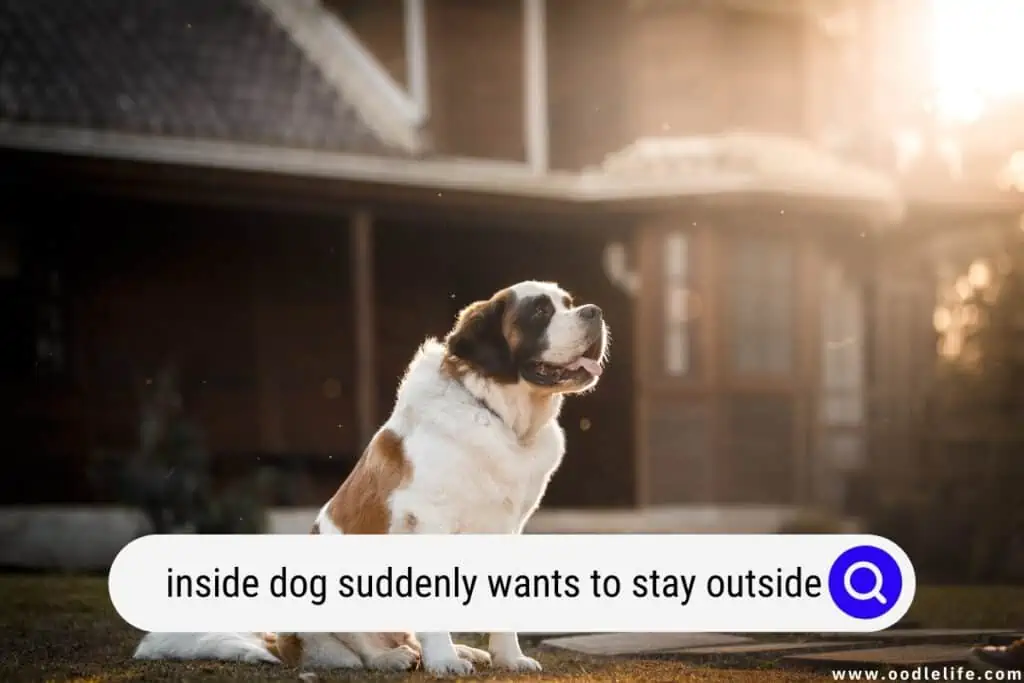
I’ll walk you through eight common reasons your dog may want to stay outside so you can get to the bottom of the issue.
1. There Are Animals To Chase
If your dog doesn’t want to come inside and they’ve got their nose to the ground or are darting their head all over the place, they could be looking for an animal.
Dogs have a 10,000 to 100,000 times better sense of smell than humans. That means what simply smells like a lovely spring day to you can smell like a host of animals that passed through your yard the night before.
It might not take a good sniffer to determine the culprit for your dog wanting to stay outside, though. A glance in the direction of where your dog is looking could reveal a squirrel, rabbit, or another critter.
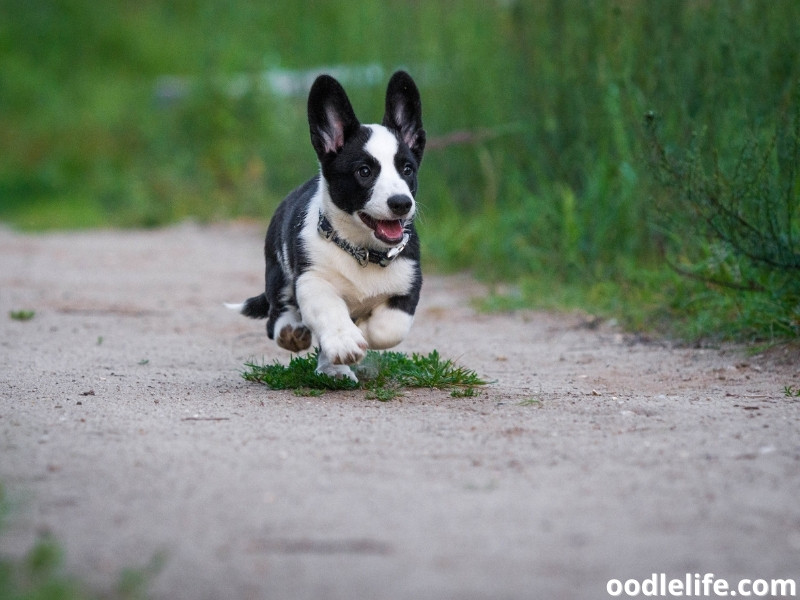
2. They’ve Discovered a Newfound Love for the Outdoors
If your dog never used to enjoy the outdoors but suddenly wants to stay outside all of the time, it could be because something in their environment changed to make them enjoy being outside.
For example, a new season may have brought in more comfortable temperatures. Alternatively, your dog might associate being outside with a new game you played with them, or the formerly scary outdoor noises no longer bother them.

3. They’re Protecting You
Your dog may want to remain outside because they feel that something is threatening you or your home.
Such a situation could be temporary, like a neighbor walking down the sidewalk. In other cases, your dog might have an innate desire to remain outdoors all the time to protect your property (more on this shortly).
In either case, it can be both touching and frustrating when your dog insists on staying outside to protect you. After all, they don’t know that the alarm system in your home can do the job for them.
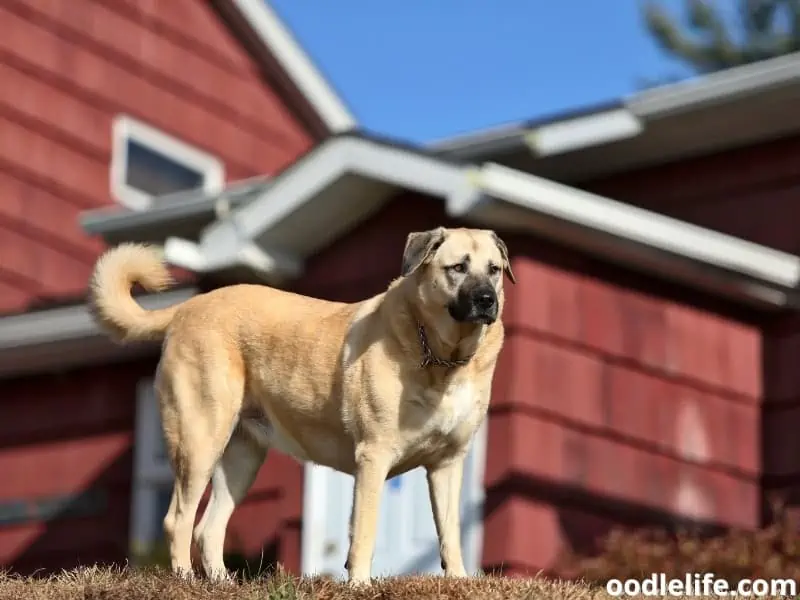
4. They’ve Made a Friend
If your inside dog suddenly wants to stay outside, it’s possible they’ve made, or want to make, a new friend.
Did your neighbor just get a new dog? If so, your dog might be reluctant to stop playing with them from across the fence.
Alternatively, since we’ve already established that dogs have an acute sense of smell, they might even be able to smell a new dog from down the road. In either case, whether your dog is a social butterfly or territorial, seeing or smelling a new dog may prevent them from wanting to go indoors.
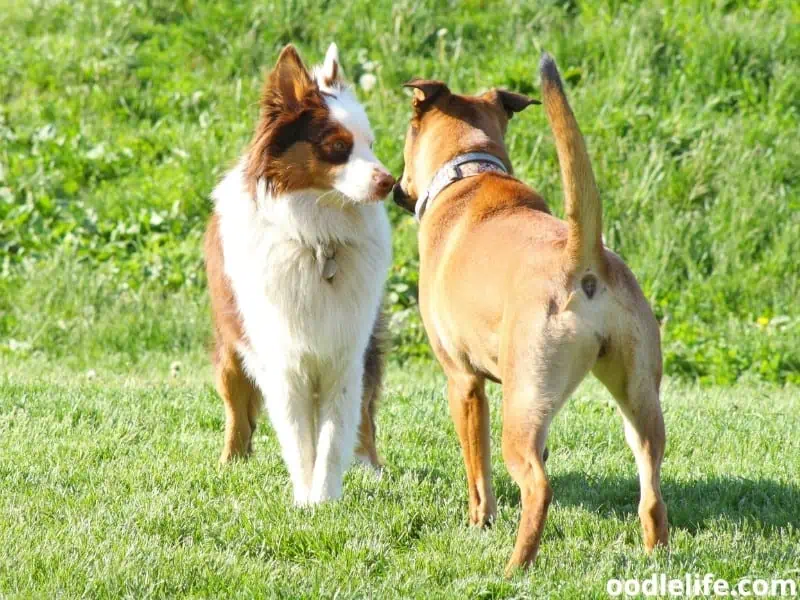
5. There’s a Psychological Issue
If you adopted your dog, there may be a psychological reason why they don’t want to go inside. It’s painful to think about, but your dog may associate being inside with neglect or physical or verbal abuse.
In these cases, if your dog acts visibly uncomfortable when they’re inside, it might be time to enlist the help of a certified applied animal behaviorist (CAAB). CAABs are experts in identifying and helping traumatized dogs overcome their fears from past abuse.
Another psychological problem could be that your dog is experiencing anxiety in your home even though they don’t have a history of abuse, and you treat them lovingly. Such a situation can occur if you bring home a new dog or move to a new home, given that there are new sights and smells.
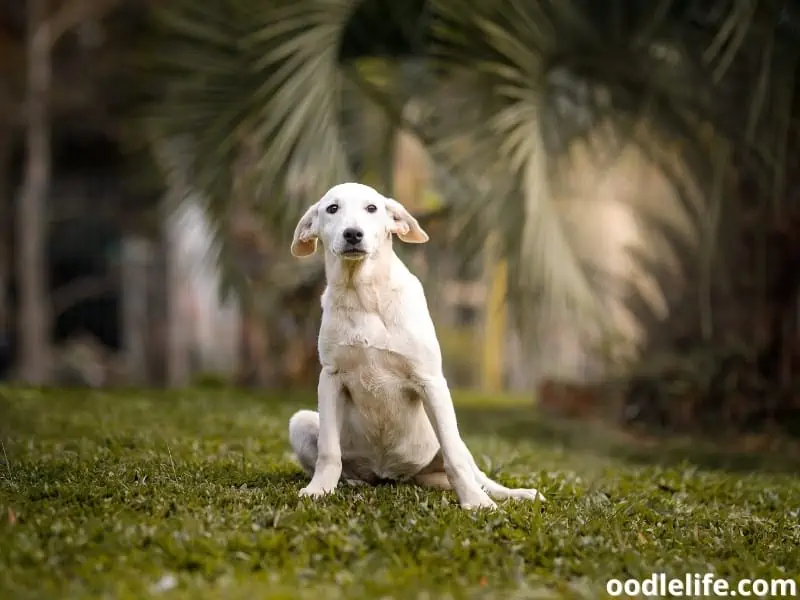
6. Your Dog Is Testing You
Even the most loving and loyal dogs can sometimes test the boundaries with their owners. So, if your indoor dog suddenly doesn’t want to come inside, it could be because they’re trying your abilities as the alpha in the pack.
Dogs aren’t inherently bossy, a trait that humans project onto them in situations such as a dog not wanting to come inside.
Instead, they’re doing as nature wired them, determining where they fall in the pack. So, if you rule out all other possibilities on this list, I recommend hiring a trainer and using positive reinforcement techniques to show your dog you mean business when you ask them to come inside.

7. Their Breed Is Outdoorsy
Dogs that have territorial and watchdog properties in their blood may not want to come inside. Instead, these dogs feel it’s their canine duty to remain outdoors, protecting you and your home from intruders.
Dog breeds that have a natural affinity for living outside include:
- Siberian Huskies
- German Shepherd
- Australian Cattle Dog
- Welsh Terrier
Although these dogs can withstand more extreme weather than certain other dog breeds, it doesn’t mean you should let them sit out a thunderstorm or be in freezing weather.
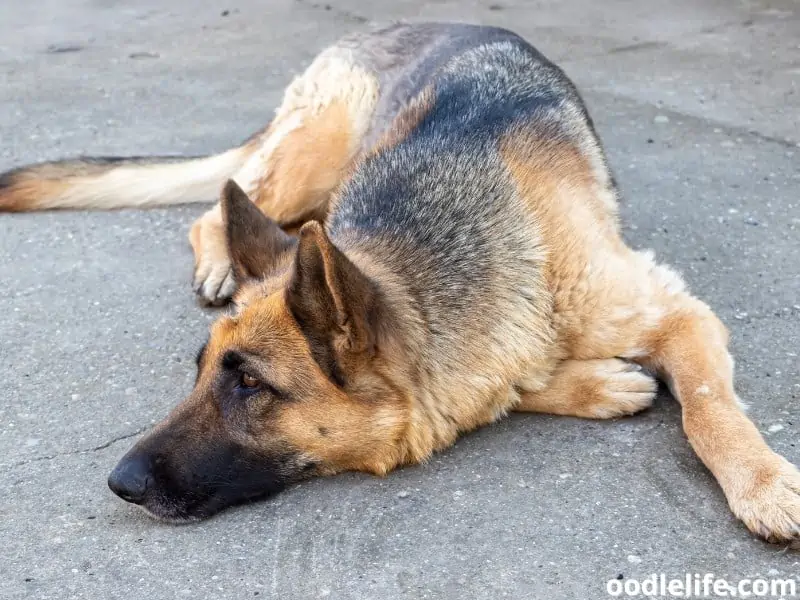
8. There’s a Medical Problem
If your couch potato dog suddenly begs to go outside and doesn’t want to come back in, there could be a medical issue at play. Such issues are usually the result of one of the following conditions:
- Parasites
- Diarrhea
- Upset stomach
- Urinary tract infection
The common theme with these health issues is that your dog will feel the urge to vomit, pee, or have diarrhea. And being the well-trained pet they are, they don’t want to do this in the house.
One of the best ways to determine the cause of the issue is by analyzing your dog’s pee or poop. Do you see parasites in their fresh poop? Does their urine have a strong odor or a cloudy appearance?
An upset stomach or diarrhea can be harder to determine the cause of. Regardless of the root reason for the medical issue, it’s always best to bring your dog to the vet. The good news is that it’s easy to treat most medical problems that cause a dog to want to stay outside.

How To Encourage Your Dog to Return Indoors?
It’s important to make going inside your house exciting for your dog; it’ll likely worsen the problem if they feel you’re frustrated with them.
So, below are some tips for coaxing your dog to come inside:
- Use a kind, encouraging voice.
- Offer them a special toy or treat.
- Ensure it’s a comfortable environment .
- Give them lots of exercise.
Consistency is key when trying to get your dog to come inside. For example, if they know they have a special treat or toy that they get when coming inside, they’ll know they have that to look forward to.
Similarly, you want to ensure the environment is comfortable for your dog. Perhaps your beloved young child likes to pull on their ears. If your dog doesn’t have a safe, quiet space they can escape to, they might be more reluctant to come inside.
It’s also vital to ensure you’re giving your dog plenty of opportunities for exercise. The amount of exercise a dog needs depends on its age, breed, and health. However, most healthy adult dogs need at least 30 to 60 minutes of exercise per day.
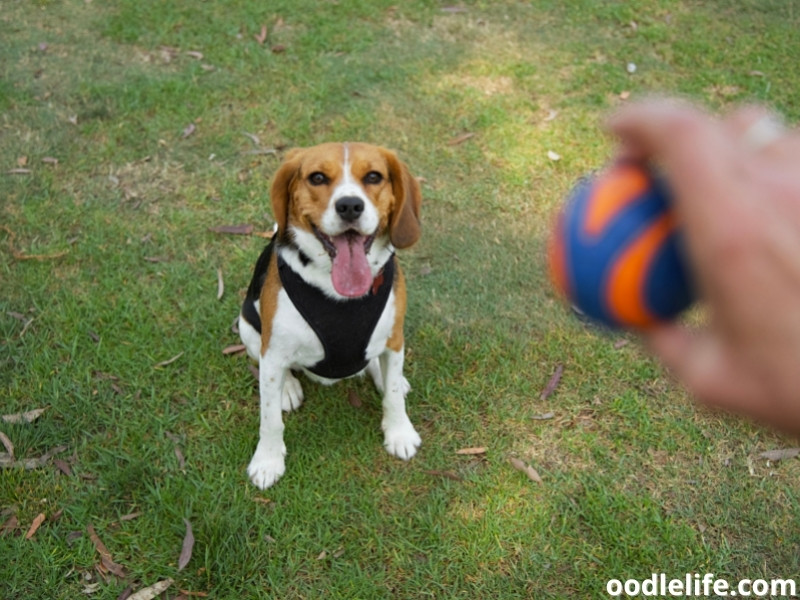
Keeping Your Dog Comfortable Outside
If your inside dog suddenly wants to stay outside and you’re ready to throw in the towel and let them stay outside, it’s crucial to ensure they have some basic necessities . These include:
- Bed
- Access to water
- Shade at all times of the day
- Shelter from wind and precipitation
- Dog heater for the winter
You should also monitor the temperature. If an extreme heat wave or cold spell is coming up, it’s best to bring your dog inside even if they don’t want to come in. Both of these situations can lead to illness.
Furthermore, if your dog becomes ill or is elderly, it’s also best to keep them inside instead of leaving them outside 24/7.
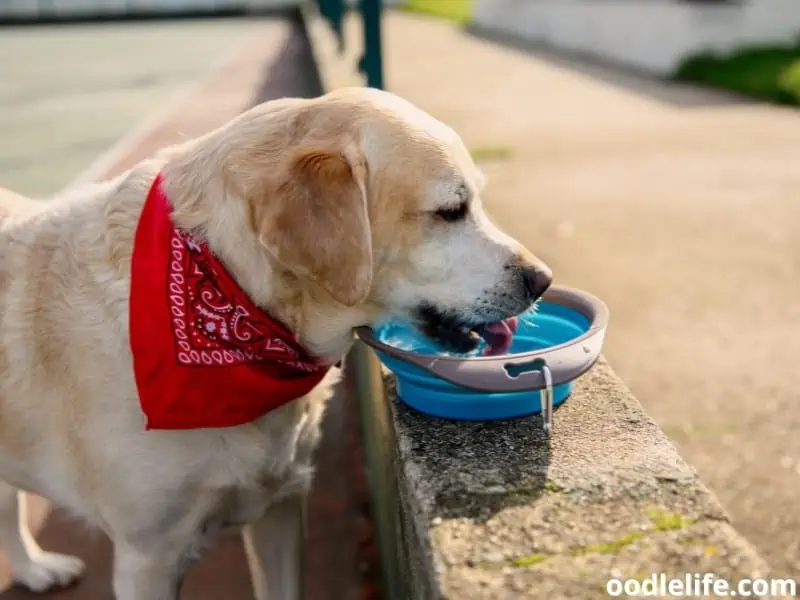
Getting to the Root of the Problem
Hopefully, your dog wants to stay outside because they enjoy it and not because they have a medical problem.
But when in doubt, it’s always best to take them to the vet. For all other situations, using positive reinforcement training techniques or hiring a professional trainer can help make it easier to get your dog inside when the time comes.